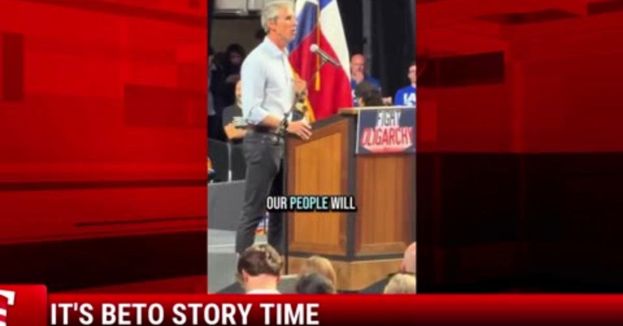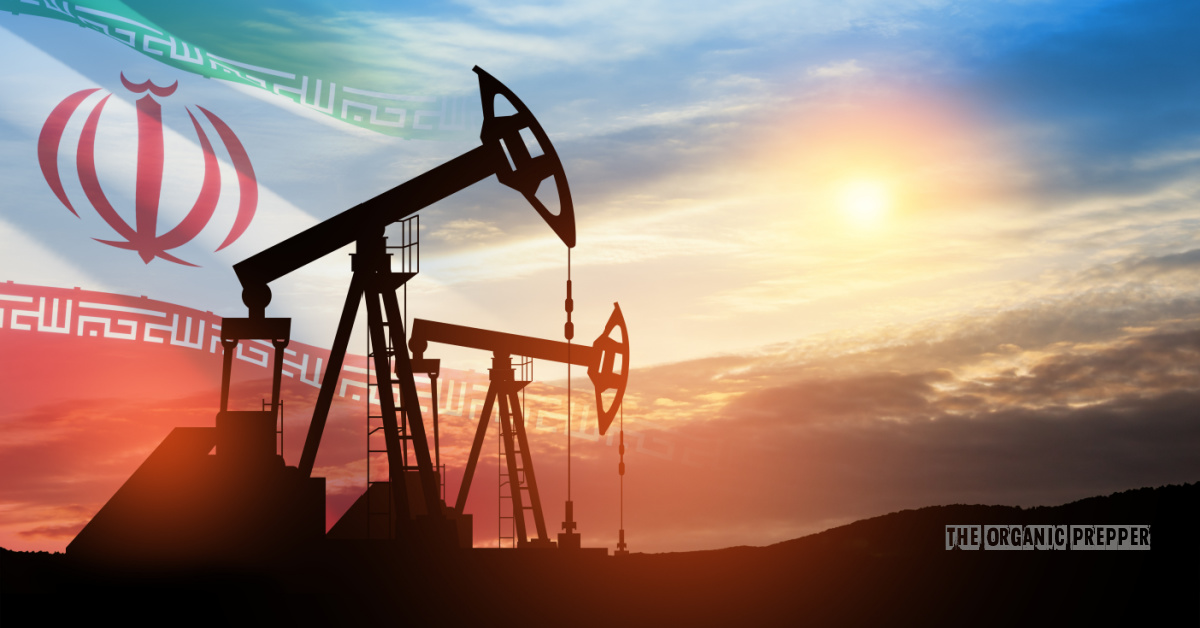
www.theorganicprepper.com
Americans Aren’t the Only Ones Who Will Suffer from the Israel-Iran Gasoline Crisis
By Daniela Gonzalez
Dear readers,
Although I’m not an international analyst/geopolitics specialist nor do I want to be, once the attack started the first thought of my close group of friends and family was: how much fuel would we receive from Iran in the next months now? What will happen once the gasoline stops flowing in the stations?
The recent Israeli airstrikes on Iran’s oil facilities have sent shockwaves through global energy markets.
We all know that.
But one of the most vulnerable dominoes in this geopolitical chain is my own country: Venezuela.
The situation which was already difficult is now facing a quick spiral downwards and we are right in the middle of it.
We are already teetering on the brink of fuel collapse due to our reliance on Iranian gasoline imports.
No matter what the “official” information is.
The reality is very different. Remember: the ties of the gang with the Iran regime are strong. (Activate the auto-translation please). A conflict in Iran means that their accounts and the interaction dynamics change completely.
We will examine and develop the following topics below.
– The direct impact of Israel-Iran tensions on Iran’s oil exports.
– Venezuela’s lifeline to Iranian fuel and the risks of disruption.
– Three scenarios for Venezuela’s gasoline supply in 2024–2025, including the risks
– Strategic recommendations for global observers that could face high prices or fuel scarcity in the future.
1. Israel’s Airstrikes and Iran’s Oil Capacity
The Attack
In April/May 2024, Israel targeted Iran’s key oil infrastructure, including both the Abadan Refinery (Iran’s largest, producing ~400,000 bpd) and the Kharg Island Terminal (critical for exports).
The immediate consequences are a reduction in the
refining capacity: Iran’s gasoline production could drop by 15–30% (Bloomberg estimates), and (it is not like the gang in Venezuela is too concerned about this, as they have their financial operator, Alex Saab is now free thanks to Biden) the export delays: sanctions evasion tactics (ship-to-ship transfers) may slow shipments. Which of course will generate scarcity and rationing in the country (again!).
Why It Matters
Iran has been Venezuela’s top gasoline supplier since 2020, helping to offset the collapse of PDVSA’s refining network. There are no maintenance or repair contracts. Not in a meaningful magnitude anyway. The raw materials to produce the gasoline in Venezuela are mostly imported. Back in the day when the US was our main customer, we shipped crude oil that was partially paid with some of these components to cover our inner market, as it is a regular practice worldwide.
Nowadays, Venezuela’s oil industry lacks access to spare parts, machinery, and necessary technology, as well as essential consumables such as diluting fluids, for both oil wells and gasoline production.
The dependence on foreign shipping is utterly devastating.
2. Iran-Venezuela: The Gasoline Lifeline
The trade mechanics work as follows: Iran’s theocratic regime sent 3–4 million barrels per month to Venezuela from 2021 to 2023, according to TankerTrackers. Other critical components for our oil production processes (which are not produced currently in the country) are Alkylate/Naphtha, used to dilute Venezuela’s extra-heavy crude, and catalysts to “revive” the limping refineries, similar to the El Palito facility. This is an old refinery, but being close to one of the largest industrial and most populated areas, it can be considered one of the most strategically important. In light of the new, more recent events, it is clear that the exchange involved radioactive raw materials. Such trade will end exploding sooner or later in the thug’s face though. Recently, one of our writers already exposed this issue in this article. Things haven’t improved too much in 5 years, other than getting the fuel at international prices now, instead of subsidized, impossible-to-find fuel. Here is where old motors with little technology come again as a better choice than modern, delicate, hard-to-fix cars with sensors and electronics all around.
The illicit and covert methods Venezuela has employed to trade with the theocratic regime involve an extensive network:
Ghost fleets: Iran utilizes unflagged tankers and mid-ocean transfers to circumvent U.S. sanctions.
Payments in stolen assets: Venezuela compensates through gold reserves, oil swaps, or shadow banking systems, as another way to avoid being tracked.
The entire gasoline supply chain is controlled by a nationwide network of military-operated fuel stations. Medium- and high-ranking officials have amassed staggering fortunes by draining wealth from Venezuelan citizens. Many of these officials have their families residing comfortably in Europe and the U.S.
3. Three Scenarios for Venezuela’s Gasoline Supply
Worst-Case (60% Probability)
Iran Halts Exports Due to Domestic Shortages or Retaliation.
– Impact:
– 100% drop in Venezuela’s gasoline supply within weeks from now, under the light of the new events. (Yikes!)
This will make diesel and vehicular gas (propane) as the only locally produced fuels, as far as I know. Prices of food and every consumable or product you can find in a shop are already going up. Our currency has depreciated 150% by now and this is showing up in the shelves. The trend is that prices will continue going higher. 80% of the food distribution and retail is owned by a network (to give a politically correct name) of Asian merchants that are part of the worldwide money laundering ring. They pay a slice of the pie to keep themselves in business (and the taxes are rising, as the gang found this is a “legit” way to steal from the citizens’ pockets)
– Return of 10+ hour lines at gas stations (as seen in 2020).
– Black-market prices surge to $3–5/liter.
Moderate Scenario (30% Probability)
Iran Maintains Reduced Exports, but Delays Occur.
– Impact:
– Rationing (e.g., 20 liters/week per vehicle).
– Regional disparities: Shortages disproportionately affect interior states. The government’s strategy to prevent social unrest focuses on providing attention to major urban centers, ensuring more populated areas experience minimal power outages, fuel shortages, and water supply issues.
Best-Case (10% Probability)
Sanctions Evasion Prevails; Shipments Continue Steadily.
– Requirements:
– Russia/China replace Iran (unlikely; both face their own constraints).
– PDVSA repairs the refineries, somehow (Cardón/Amuay) and continues limping and dragging, providing the means to pay for the delinquents protecting the heads of the hydra.
Once the Strait of Hormuz gets plugged, it is expected that all of South America is going to experience inflation, with the consequences in turmoil, uncertainty, and instability; and our big brother to the East, Brazil, won’t be too happy to ship fuel: they know Venezuela was providing radioactive material to Iran for years. Ignoring the requests for help from the bus driver regime will be the best course of action: giving him oxygen will surely blow in Brazil’s face anytime soon.
Russia, of course, won’t move a finger, other than to keep being a safe haven for the wealth they are stealing from us. Anyone aligning themselves with Venezuela’s regime will face dire consequences. The ties with Iran have been too strong and for too much time.
We are preparing for a scenario where, even with 8 million people less to feed, who won’t be in the streets fighting for a regime change (we have to remember, 6 million of them were bus drivers’ fans until they started to starve), once things get hairy enough, the looting and rioting can very possibly start to happen again. After the savage repressive wave when they threw out the elected president Edmundo G. Urrutia, the regime will do whatever is needed to avoid losing control. The main difference now is that the allies that made them feel so strong in the past, are now facing a severe case of SVS (Sudden Vaporization Syndrome). Iran’s grip on Venezuela—political, military, and economic—is slipping, weakening a once-strategic alliance that once defied U.S. pressure. The network that allowed the illegal trading of our crude is not going to be there anymore, even with the strait closed or not. We are talking about 95% of our income, whether legal or illegal. There is another face of this cube: the drone technology supplied by Iran, and the collaboration in security (meaning repression of citizens). Word in the streets from some independent informants is, that they are building bunkers at full speed ahead, under Fuerte Tiuna (the main military facility in the country, where the bus driver supposedly lives, surrounded by civilian buildings that act as human shields). Good luck with that.
4. Strategic recommendations.
Venezuela’s gasoline supply dangles precariously, reliant on Iran’s volatile stability. Any escalation in the Israel-Iran conflict could plunge Caracas into its most severe fuel crisis since 2020—with no quick fixes in sight. While the scenario is dire, at least we’ve been given a warning beforehand. Prices are going to go up from 0,5$ per liter to 0,75$. (Editor’s Note: This roughly translates to 4L per gallon of fuel.)
Facing ongoing problems with substandard fuel quality, numerous vehicle owners are converting from fuel injection systems to smaller carburetors as a practical workaround. Although this represents a technological regression, carbureted engines are better suited to low-speed driving (capped at 70 kph) and significantly simpler to maintain compared to modern counterparts, which demand advanced tools like OBD2 scanners, and some technical expertise.
Short-term: Stockpile gasoline (obviously) always in safe conditions, where no damage can be done.
Rationing strategically will take you a long way, and always try to replenish as soon as possible.
Extending the reserves by using EVs if available.
Avoid pre-loading fuel to reduce evaporation losses in the tank. (This is a real issue—drivers in our hot climate frequently report it. Imported fuel often contains unnecessary anti-freeze additives, which increase volume but evaporate quickly.)
Being ready with spares like fuel pumps, extra filters, and maybe octane boosters to mitigate the effect of the lack of quality control in the fuel.
Long-term: Revive domestic refining (requires $2B+, many technology transfer agreements, and foreign expertise).
You may want to get a small portable air pump and use gauges to keep tires filled up to the proper pressure. This might appear insignificant, but it is not.
Keeping the tires properly aligned.
Establishing a matrix of operational costs for our vehicles, to assess accurately the cost per kilometer, and assess our basic mobility needs per week.
Choose fuel-efficient vehicles whenever possible. Sure, oversized crew-cab pickups with extended beds look impressive, but do you need one for trips where a basic Civic could do the job just as well?
Drive your vehicle in the sweet spot where it is more efficient. Even if the road conditions and the speed limit allow for it, don’t get tempted to drive faster. When you don’t have fuel to burn, arriving 30 minutes later is nothing compared to staying stranded. Every vehicle has this range, just experiment and record the results to find it. If your car has cruise control, so much better.
With rising fuel prices, many drivers turn to passive OBD2 fuel economizers. These devices monitor real-time data to help optimize driving habits. They display key metrics: instant fuel consumption, RPM, engine load, and speed. The goal is to alert drivers about habits that increase fuel use, like hard acceleration or high RPMs. Offering real-time feedback, they are useful to help you adjust your driving style. There are no engine risks, as they don’t modify the ECU at all, they only read the data and calculate the results they display based on the readings. However, I wouldn’t advise you to keep them permanently connected to your OBD2 port. They can also detect issues, like faulty spark plugs or clogged filters. These gadgets offer wide compatibility: you can use them in most post-1996 vehicles. However, there will be no savings if you exit the zone they indicate. The savings are variable: 5-12% on highways and 3% in city traffic. Its efficiency relies a lot on the drivers’ discipline.
We can extract some valuable lessons from all this:
1, You start reducing your dependence on fuels, or you better start producing them.
2. Those needing less fuel to produce what they need will be the ones with the best chance to prevail.
3, There is technology available we can rely on to minimize our fuel consumption by modifying our habits. Some people even don’t realize they have a heavy foot.
As our main conclusion, we could say:
We are facing an almost total interruption in the fuel supply for 70% of the gasoline vehicles in the country.
Let’s hope this doesn’t happen (again), but if it does happen we will be there to describe the events as they are, without any bias.
Facta, Non Verba.
Remember, we describe the events we are going through to help you improve your prepping, and mitigate the impact of unexpected disruptions.
Keep following our travails in Organic Prepper, and please remember to support our work!
Thanks for your reading,
Daniela.
Sources:
– TankerTrackers.com (shipment volumes).
– Bloomberg (Iran refining capacity post-attack).
– PDVSA leaks (refinery status).
About Daniela
Daniela Gonzalez is a student of history at the Universidad Central de Venezuela in Caracas.
The post Americans Aren’t the Only Ones Who Will Suffer from the Israel-Iran Gasoline Crisis appeared first on The Organic Prepper.














